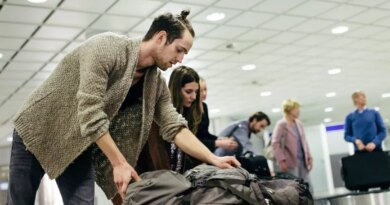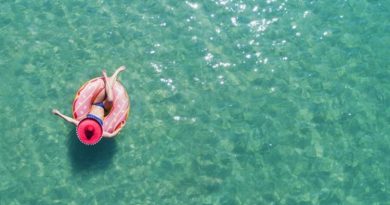Ryanair ‘Jab & go!’ ad banned after thousands of complaints
Ryanair’s New Year advertising campaign, urging travellers to book Easter and summer flights on the basis that vaccination will open up travel, has been banned.
So many people objected to the airline’s “Jab & Go” promotion that the Advertising Standards Authority (ASA) fast-tracked its investigation.
The TV campaign, advertising flights from £19.99, launched on Boxing Day 2020.
The ad began with an image of a medical syringe and a vial labelled “Vaccine”.
Alongside images of people in their 20s and 30s at holiday destinations, the commentary asserted: “Covid vaccines are coming. So book your Easter and summer holidays today with Ryanair.
“So you could jab and go!”
Read more
The voice-over continued, “Book today on Ryanair.com and if your plans change, so could your booking.” The ad ended with the message “JAB & GO!”
INDY/GO Weekly Newsletter
TIME TO TRAVEL!
Read our full mailing list consent terms here
INDY/GO Weekly Newsletter
TIME TO TRAVEL!
Read our full mailing list consent terms here
The ASA said many complainants felt the ad was misleading because it implied most of the UK population would be successfully vaccinated against Covid-19 by spring/summer 2021 and could go on holiday unaffected by coronavirus restrictions.
Ryanair argued the ads were uplifting and encouraged viewers to consider a brighter future when restrictions were lifted and people could go on holiday with friends and family again.
The airline said that if the rollout continued as planned, a significant proportion of the population – including people of the ages shown in the ads – may have been vaccinated by the middle of 2021.
It also argued that any reasonable member of the public would therefore understand that two doses of vaccine were needed to provide effective protection against Covid-19, and that immunity was not granted instantaneously but instead built over time.
Ryanair’s defence that the ads showed people holidaying within their social bubble, and said that there were no requirements that holidaymakers be shown wearing face masks or social distancing.
But the ASA concluded that the ad was potentially damaging: “Some viewers were likely to infer that by Easter and summer 2021 it would be possible for anyone to get vaccinated in order to go on a booked holiday, that maximal protection could be achieved immediately through one dose of the vaccine, and that restrictions around social distancing and mask wearing would not be necessary once individuals were vaccinated.
“We considered this could encourage vaccinated individuals to disregard or lessen their adherence to restrictions, which in the short term could expose them to the risk of serious illness, and in the longer term might result in them spreading the virus. As such we considered the ads could encourage people to behave irresponsibly once vaccinated.
“We further considered the ads encouraged people to behave irresponsibly by prompting those who were not yet eligible to be vaccinated to contact GPs or other NHS services in an attempt to arrange vaccination, at a time when health services were under particular strain.”
The airline insisted the campaign was “both factual and accurate” – and said that, according to the ASA’s logic, all holiday advertising for Easter and summer should also be banned.
A Ryanair spokesperson said: “The ASA’s ruling flies in the face of the UK’s successful vaccine rollout, however even though this ruling is baseless, Ryanair will comply with it and the Jab & Go adverts will not run again.”
The authority said the 2,370 complaints made it the third-most complained about ad of all time.
Only a Paddy Power ad promoting bets on the trial verdict of the South African athlete Oscar Pistorius, and a Booking.com campaign using the word “booking” in place of a swear word, have attracted more complaints. Both appeared in 2014.
A similar Ryanair ad in Ireland has already been banned.
On Monday the airline, which is Europe’s biggest budget carrier, announced it lost an average £3m per day in the last three months of 2020.
Source: Read Full Article





